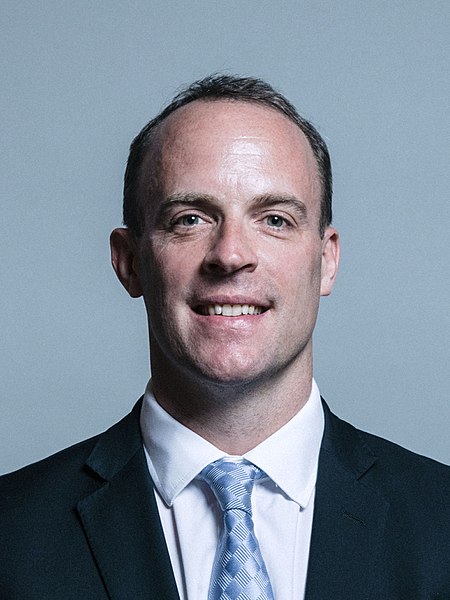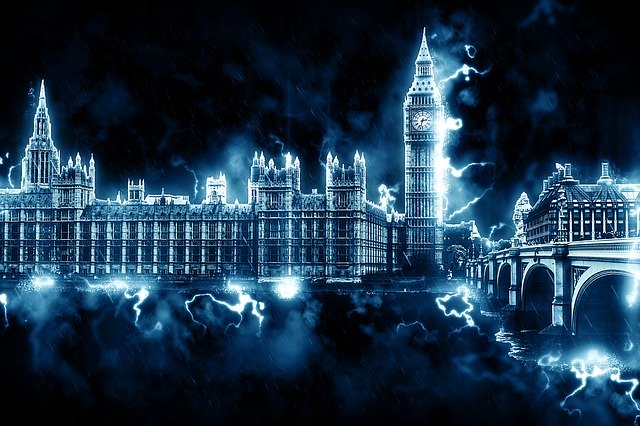A Vision for the Post-Brexit West
Originally published here
Despite being a passionate Leaver, I have a confession to make: for me, Brexit is not really about Britain. There you are – I said it!
This assertion does not always make me very popular among Brexiteer circles, but it lies at the very heart of my belief that it is essential for Britain to leave the European Union. Naturally I do love my country, but Brexit, for me, has always been about a lot more than the fortunes of one nation. The way that the UK’s departure from the EU is handled, along with the choices that are made over the next few years both at home and abroad, will form part of an existential test for the future survival of the entire Western world.
We have found in the European West before, over the many hundreds of years of its evolution, that an imposed peace in the form of hegemony does not work. Take the Pax Romana, for example, which began around two millennia ago. The Roman Republic became the Roman Empire, and while there was still some warfare to keep rival powers in submission, over the next couple of hundred years the Empire enjoyed a period of relative stability and order, largely due to its dominance on the continent.
This is not to say that the in-fighting and revolts did not continue – indeed they did, but the hegemony of the Roman Empire kept the continent as a whole stable for far longer than its various peoples had ever seen before. Historians today note, however, that this was not true peace, achieved as it was only through the inability of any challengers to succeed in taking on the might of the Empire (although many tried). In the end, this period of relative peace and prosperity for the Empire drew to a close when Commodus became Emperor upon the death of his father, Marcus Aurelius. Commodus became ever more corrupt, dictatorial and megalomanic, eventually plunging the Empire into chaos towards the end of his life and following his assassination.
The trouble with the dominance afforded by hegemony, as we have seen before in Europe, is that it always results in the creeping corruption of those who rule it – and it was always corruption and moral decline, in the end, that brought down the Greeks, the Romans, the Byzantines, and to a certain extent the Ottomans. While we no longer send our young people to die pointlessly in trenches on this continent – and have thereby learnt at least some lessons from our recent history – it seems we have become blind to an even older wisdom that beckons from our much earlier past. Namely, that dominance leads to hegemony; hegemony leads to corruption through a lack of proper accountability; and corruption inevitably leads to the decline and fall of a civilisation.
In the European Union, we see a corrupt and anti-democratic institution that seeks ever greater dominance in the affairs of this continent and denies us the free choice of alternatives. We see an institution whose accounts have never been signed off by independent auditors. We see leadership structures that cannot be held accountable at the ballot box, and elected law-makers with no ability to make laws (or, indeed, to be prosecuted). We see lavish spending on frivolities, largely designed to spread propaganda and keep its wealthy elites in order, and we see constant messaging designed to convince hundreds of millions of people that they need this political institution, simply in order to stop killing one another. And – of course! – it calls itself progressive.
But this is the fundamental mistake that has been made so often in Europe over time. If you really believe in human progress, then you should go out and convince hundreds of millions of people that they don’t need political institutions simply in order to stop killing each other and unite in peace.
Now, that sounds like progress!
We will have peace in this world when human beings choose it – not when it is imposed, be that by the sword, or by the will of a supposedly benevolent hegemony that clings to power because it no longer believes its citizens can be trusted not to get it wrong all over again.
Whereas once in Europe it was said that ‘all roads lead to Rome’, now it would seem that ‘all roads lead to Brussels’ – denying individual nation states the opportunity to forge a true, progressive peace through their own sovereign choices. To put it in free market terms, the European Union has ‘monopolised’ the notions of peace, prosperity and progress – and monopolies are always bad for their customers.
The solution, then, lies exactly there: in the matter of human choice. It is vital that the Western world learns precisely this lesson, and learns it precisely now. Britain is the best-placed country in the West to provide that lesson, and we should go about it as follows.
Firstly, we should of course seek to conclude a satisfactory Free Trade Agreement with the EU, although we should not extend the transition period in order to do so – as this would, in fact, make that outcome less likely. If necessary, we should turn the tables of the ticking clock on them in the middle of the year, when the mutual decision as to whether or not to extend must be made. During this time, we should also be casting our gaze further afield, beyond Europe’s borders, and building relationships with the rest of the world. If we can succeed in this, then we will have sent the message we needed to send – both to the rest of Europe and to the wider West.
However, we must also be prepared make a clean break from the European Union if we seem unlikely to fare well in these negotiations, once they commence. The EU’s newly-minted leaders may wish to show they have ‘arrived’ by sticking to their guns with Britain. Some have said the initial impetus on the Continent was to punish Britain for trying to leave at all; if no lessons have thus far been learned from this, then the new resolve could well be to punish the UK by the nature of its future relationship. If this is the impression we are getting by the middle of the year, then we should be ready to depart on global terms, and not theirs.
Either way, we should then spend the next few years forming up with the Anglosphere – in particular, with the Five Eyes of the US, UK, Canada, Australia and New Zealand. The Europeans may be our brethren, yes, but the Anglosphere are our kin. We share a common language, many traditions, roots, history and culture. We have a mutual geopolitical strategic interest in forming up at this juncture, as many of our friends across the water have already been keen to point out. We should therefore begin by formalising a ‘CANZUK’ free trade and perhaps movement agreement, which polling has shown to attract broad support among the populace in each country.
The US is likely to prefer a looser style of arrangement, which is no major issue as long as reasonably substantive FTAs can still be accommodated between all five countries. Unlike the EU, however, we will not be seeking to rule one another or to put up protectionist barriers, so we will continue to innovate as a market. Key to it all is the size of our respective populations; the oft-quoted figure for the size of the present Single Market is 500 million people, although this is in fact for the EU28, not the EU27 once Britain has left.
We are then, in effect, aiming to match a target of somewhere around 430 million people. The US and UK added together bring us immediately to 400 million, while adding Canada, Australia and New Zealand in fact takes us well over this target. If the UK was forced to leave the EU on WTO terms, we should then turn back around to the EU as a bloc in our own right, and propose negotiating a Free Trade Agreement as equal partners – not just as Britain alone. If we did get our own FTA, then the new and broader Anglosphere arrangement should complement that.
The choice that Ursula von der Leyen and her cohort would then face is simple. They can either keep the Anglosphere bloc as a non-protectionist, constantly innovating rival with one powerful member right on their doorstep, or they can choose for the (now) two major power bases in the West to be friends and partners. That choice, of course, will be up to them.
Whichever way it goes, Britain will have demonstrated two things to the entire Western world. Firstly, that true choice still exists – be it that of individual voters in a referendum, or that of the governments they democratically elect to serve them. Secondly, that the creeping rise of hegemony and corruption is not inevitable, and that power truly does lie with the people. It is this realisation that will be vital for breaking the power of the EU’s delusion that it is the only route towards peace and prosperity, and this in turn will be crucial for revitalising our Western democracies to stand fast against the rise of threats from the East.
Corruption and decadence set in when choice is removed, and we know from history that this always foreshadows the collapse of a civilisation. Its restoration will be the vital ingredient in ensuring that our Western cultures continue to survive and prosper. And so I say to all my fellow Brexiteers: by all means, do wave the flag. Do extol the many benefits afforded to Britain itself, through taking back control of our laws, our borders and our money. Do talk up free trade deals with countries all around the world.
But be mindful also that this great enterprise in which we are engaged goes far further even than that. It is in fact, as I have outlined, an existential issue for the survival of the Western world – and this should never be far from our thoughts as we prepare to make a success of it in the months to come.

